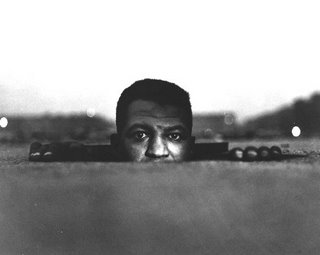Digital is a state of mind. It is not a channel.
This is a perspective that radically alters the balance of power between producer and consumer.
Now the consumers are producers. We are in the era of Mass-Creation. In one day, YouTube uploads a Blockbuster outlet’s worth of video content.
Digital technology hasn’t so much created a fragmented multi-channel world as a one-channel world, yours. Think Google and Yahoo’s customised home pages gathering all your favourite feeds into one place.
Now the consumer has become a media owner too.
The barriers to broadcast (or more often narrowcast) have disappeared as teenage girls post their thoughts immediately into blogs whilst IMing their friends.
It used to be all about the big creative idea. And it still is. The difference is that now, the big idea can be reversioned and reproduced in myriad different ways. Instantly.
The age of creative ideas and campaigns owned by brands, their advertising and media agencies is ending. Today Chevrolet gets the public to co-create their campaigns. Sometimes with embarrassing results. Think suicide bomber in a VW polo.
Control has already been relinquished. Anti-McDonald’s websites were just the start.
Control was a myth anyway, convenient for marketing professionals but totally bogus. A brand exists in the minds of the public, it is ultimately devolved.
Yesterday, brand managers hoped that the stimulus they created would help shape perceptions positively, would encourage the right word of mouth. And ultimately sell their products and services. Today their hopes are the same, but the challenge is more complex. And more interesting.
All forms of traditional marketing agencies at heart are afraid and unhappy with the birth of a world where their favourite medium isn’t king by divine right anymore. But this is simply a fear of change.
What frightens them is not knowing how to reach large numbers of people with a well-crafted story anymore, when channels are fragmenting and stories get edited, twisted and reframed.
Perhaps they need to take a lesson from the martial arts? Don’t oppose your opponent’s energy, it’s wasteful. Use it instead to achieve your goal.
The best brand strategies are being designed to embrace the world of Mass-Creation and to harness the power of the one-channel media owner. Tomorrow’s successful brands already revel in the power of peer-2-peer review, seeing the customer as a channel on a scale that dwarfs the audiences of 1960’s TV stations.
When you look at it that way, you realise there are two ways of seeing the change. It’s either the death of the era of mass-marketing, as we descend into a dark age, seething with rubbish content, lies, confusion and chaotic extremism furthering personal prejudice. Or it’s the dawn of a golden-age, as significant as the Renaissance, a great flowering of creativity and the birth of new communities of interest that will change the World for ever.
So what about brands and their creative ideas in this brave new world?
1. Devolve ownership, become a brand Steward not a brand Director
2. Encourage co-creation with the customer in everything you do
3. Harvest the best of your advocates’ creative efforts and distribute it
4. See your consumers as a channel in their own right, remunerate them accordingly
5. Turn your brand from an artificial abstracted construct into a lifestyle channel for your chosen community…
6. … and facilitate the best Wiki in your category
7. Develop a deep and penetrating understanding of your communities of interest, do it by participation, not by remote observation
8. Segment your offer in manifold ways to make the most of the long-tail
9. Break down the walls of the firm and create a porous wall to encourage osmosis with your community
10. Don’t limit access to your business, products or people; make everything available everywhere all the time on every platform
11. Turn your brand story from a monograph into a participatory soap opera
12. Align formal partnerships according to the web of interests that your communities have created
13. Put as much creative effort into your analytics as you do into artwork
14. Make sure the content you create is enlightening and engaging, refresh it regularly

















